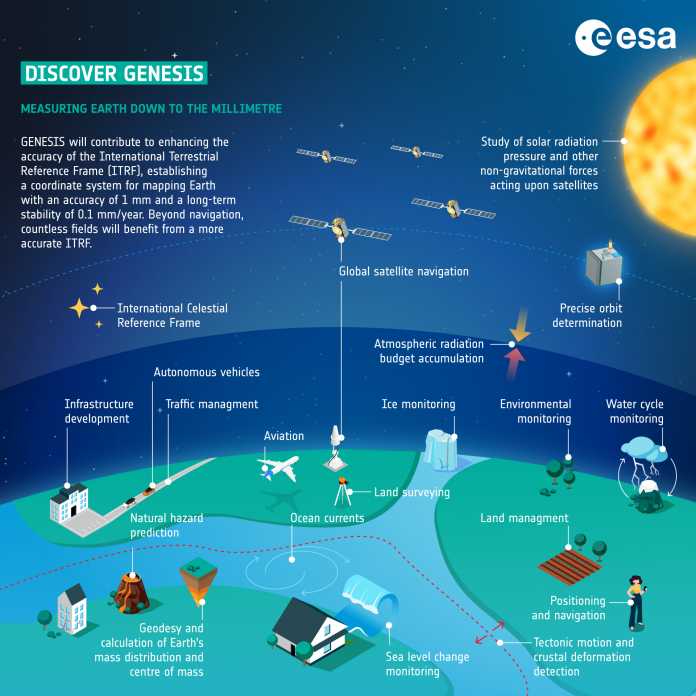The European Space Agency wants to measure the Earth with millimeter accuracy and has now commissioned the design and construction of a satellite called Genesis. A subsidiary of the Bremen-based satellite manufacturer OHB will receive a total of 76.6 million euros. The mission will be supported by ESA member states Italy, Belgium, France, Switzerland, Hungary and the United Kingdom. The satellite is scheduled to be launched in 2028 and will provide what is known as the Global Earth Reference System.ITRF) delivery. This is a coordinate system for the most important navigation technology in the world, which is based on the best data. Once it becomes available, the space agency promises it will have an immediate impact on a wide range of applications. Europe’s Galileo satellite navigation system will also benefit.
Advertisement

Summary of Genesis
(Photo: ESA – F. Zonno)
In parallel with the award of the Genesis satellite contract, ESA also ordered two satellites for the LEO-PNT program. They are intended to orbit the earth – at an altitude of 500 to 600 km – and test new signals and frequency bands for the future navigation system. The technology should be more robust, more accurate and faster than the one currently in use. This should also make new applications and services possible. Both satellites will be built by companies from Spain, Germany, France and Italy for 78.4 million euros each. The first of the two satellites should be launched in 20 months, and both should orbit the earth before 2027.
The software responds to the growing demand for more reliable and accurate navigation systems, says the ESA. The directive aims to ensure that Europe takes the first place in satellite navigation and is also aimed specifically at the competitive sector in the continent, says Javier Benedicto, who is responsible for navigation at the space agency.
(my)
























